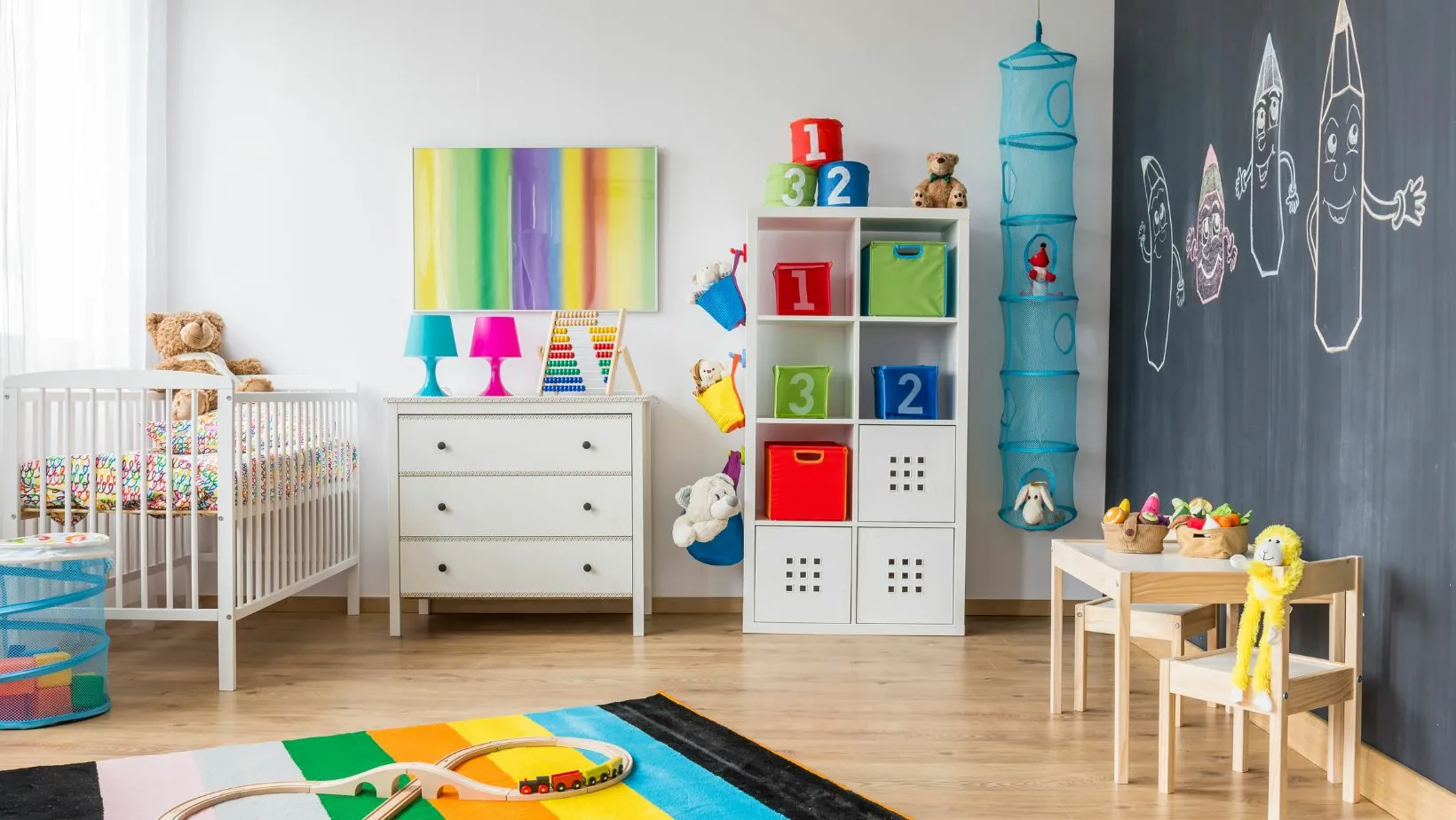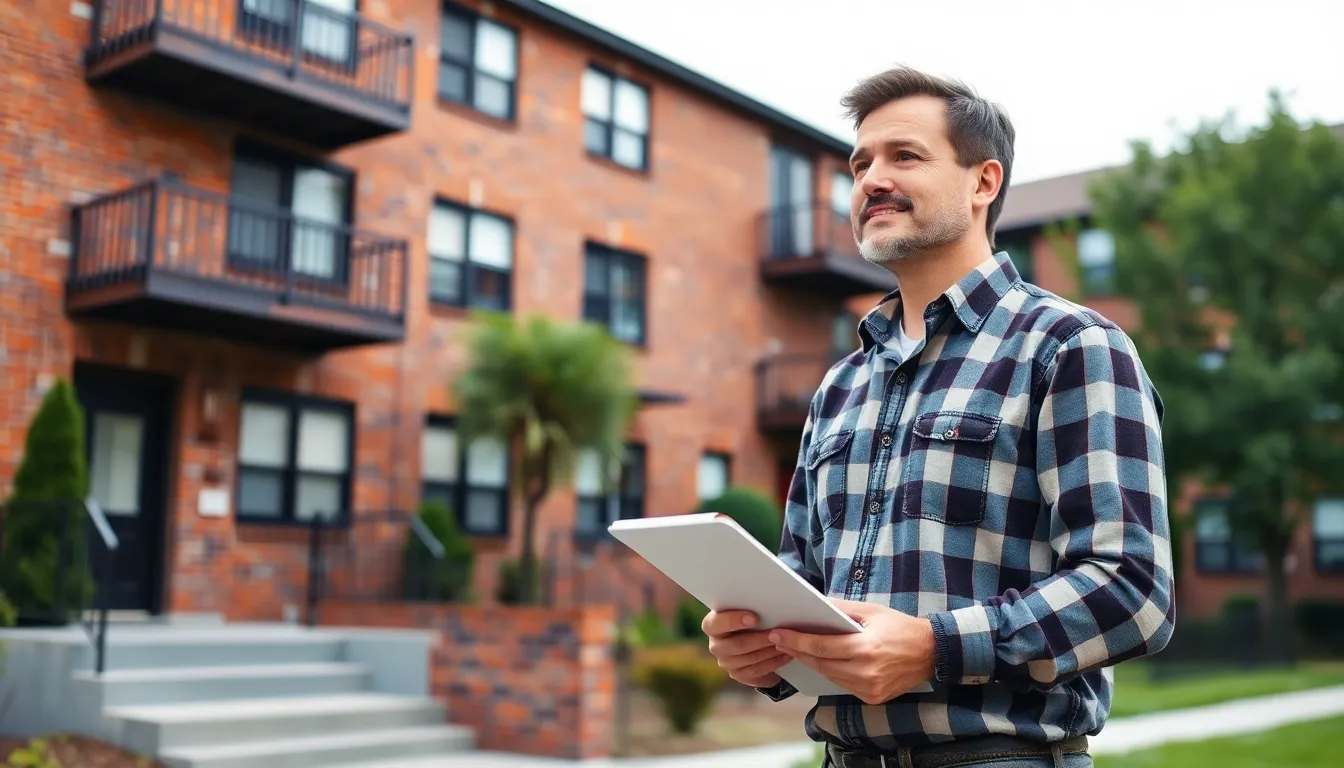Table of Contents
ToggleBuying a new home is like stepping into a thrilling adventure—exciting yet daunting. While visions of cozy nights and backyard barbecues dance in their heads, many forget the not-so-glamorous side of homeownership: budgeting for those sneaky expenses. From hidden fees to surprise repairs, the costs can pile up faster than a mountain of moving boxes.
Understanding Budgeting for New Home Expenses
New homeowners must account for various expenses beyond the purchase price. It’s essential to be prepared for the financial responsibilities that accompany homeownership.
What Are New Home Expenses?
New home expenses include costs associated with buying a home, moving, and ongoing maintenance. Closing costs such as appraisal fees and title insurance often catch buyers off guard. Moving expenses can add significant figures, including hiring movers or renting trucks. Home maintenance costs encompass repairs, landscaping, and seasonal upkeep, which should not be overlooked. Property taxes and homeowners insurance require regular payments, contributing to the overall budget. Utility costs like electricity, water, and internet are ongoing expenses that need consideration. Each category contains unique costs that can vary significantly, affecting the overall financial plan.
Importance of Budgeting
Budgeting plays a vital role in managing new home expenses. A clear budget helps ensure that all necessary costs are accounted for before moving in. Creating a detailed financial plan provides a roadmap for homeowners to monitor their spending and avoid surprises. Incorporating a contingency fund into the budget accounts for unexpected repairs or maintenance needs. Moreover, budgeting supports long-term financial health by allowing homeowners to allocate funds for future investments, renovations, or savings. Establishing realistic spending limits can reduce stress and provide greater financial control as homeowners navigate their new responsibilities.
Essential Expenses to Consider
Homeownership involves various ongoing costs beyond the initial purchase price. Homeowners must plan carefully for these essential expenses.
Mortgage Payments
Mortgage payments represent a significant portion of a homeowner’s monthly budget. Fixed-rate mortgages provide stability, while adjustable-rate options might fluctuate. Monthly payments consist of principal, interest, taxes, and insurance. This total can vary based on loan amount and interest rates. Homeowners must include these amounts in their financial plans to ensure affordability.
Property Taxes
Property taxes depend on local tax rates and the assessed value of the home. Generally, these taxes are calculated as a percentage of the property’s value and can vary greatly by location. Homeowners should budget for this expense, as it often requires payment twice a year or as part of monthly mortgage payments. Not paying property taxes can lead to penalties or tax liens.
Homeowners Insurance
Homeowners insurance protects against risks such as damage to the property or liability claims from accidents. The cost of premiums can vary based on coverage levels, property location, and the homeowner’s claims history. On average, homeowners pay about $1,500 annually for coverage. Lenders often require proof of insurance before finalizing a mortgage, making this expense non-negotiable.
Utilities and Maintenance
Utilities encompass essential services like electricity, water, gas, and trash collection. On average, these costs can range from $200 to $500 per month, depending on usage and location. Maintenance costs involve ongoing repairs and unexpected issues, such as plumbing problems or roof leaks. Setting aside 1% to 3% of the home’s value annually for maintenance helps homeowners stay prepared for these financial responsibilities.
Tips for Effective Budgeting
Effective budgeting helps manage new home expenses and promotes financial stability. Homeowners can approach budgeting strategically for better control over their finances.
Creating a Comprehensive Budget
First, list all expenses related to homeownership. These should include closing costs, moving costs, taxes, and utility bills. Next, categorize expenses into fixed and variable types to better understand cash flow. Allocate specific amounts based on priority and necessity, ensuring regular expenses like mortgage payments and insurance are accounted for. Adjustments may be necessary as homeowners track ongoing costs. This comprehensive view supports informed spending decisions.
Tracking Costs
Keeping a detailed record of expenses crucially aids in budget management. Homeowners can use apps or spreadsheets to log all spending related to their new property. Regular updates on utility bills, maintenance costs, and property taxes inform budget adjustments. Reviewing costs monthly helps identify patterns and unexpected expenses. This consistent tracking promotes financial awareness and helps in fine-tuning the budget as required.
Setting Aside an Emergency Fund
Establishing an emergency fund for unexpected repairs is essential for homeowners. Aiming for at least three to six months’ worth of living expenses provides a buffer against unforeseen costs. Setting aside about 1% to 3% of the home’s value annually for maintenance should also be considered. Homeowners can contribute to this fund each month to ensure the reserve builds steadily. Accessing these funds can ease financial strain during emergencies and maintain peace of mind amidst homeownership challenges.
Tools and Resources for Budgeting
Homeowners can utilize various tools and resources to streamline their budgeting efforts. These options enhance financial awareness and promote effective cost management.
Budgeting Apps
Budgeting apps provide users with a convenient method to monitor expenses. Apps such as Mint, You Need a Budget (YNAB), and PocketGuard allow homeowners to track spending patterns in real time. Functions include categorizing expenses as fixed or variable and setting financial goals. Users can adjust budgets based on their priorities. Features like automated alerts help users stay on top of spending limits. Integrating banking information simplifies the process, making it easier for homeowners to maintain an accurate financial overview.
Financial Planning Services
Financial planning services offer tailored advice to new homeowners. These services assist in creating comprehensive budgets that consider all potential expenses. Professionals guide clients in prioritizing costs such as mortgage payments, property taxes, and insurance. Evaluating individual financial situations ensures that homeowners develop realistic spending limits. Services may also provide insights on long-term financial strategies, including building a robust emergency fund. Engaging with a financial planner can significantly enhance confidence in managing budgetary challenges over time.
Conclusion
Budgeting for new home expenses is essential for a smooth transition into homeownership. By understanding the various costs involved and planning accordingly, homeowners can avoid financial pitfalls that may arise unexpectedly.
Establishing a comprehensive budget and tracking expenses not only fosters financial awareness but also empowers homeowners to make informed decisions. Utilizing budgeting tools and resources can further enhance their ability to manage ongoing costs effectively.
With the right preparation and proactive strategies, homeowners can enjoy their new space while maintaining financial stability. Taking the time to budget wisely ensures that they’re ready for whatever challenges may come their way.








